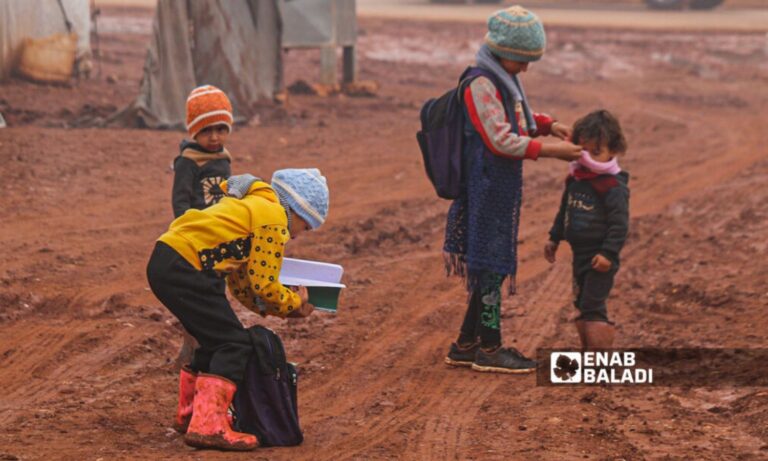Teacher Abdul Rahman Al-Qadr is flipping through his school’s curriculum, trying to figure out how to explain his lessons to his students the next day. Rather than relying on essential teaching tools that are missing, we want to rely on students’ imaginations to convey information. From a school in Idlib.
Models and other teaching tools save time and effort and give students greater scientific capabilities, said Al-Kadr, a first-grade teacher who has worked in Idlib schools for eight years.
Educational tools such as maps, models, magnifying glasses, and math counters are important and essential resources that should be available in schools and are used by teachers to convey information to students in a practical way.
Mr. Al-Kadr told Mr. Inab Baladi that while some students can visualize the concept, others are unable to reach the correct understanding, so the teacher has to rely on verbal explanations. , said it takes more time to convey information.
According to Al-Khadr, the best way to teach students in early childhood is through play. Because children love using different senses such as touch and vision, which helps them use their curiosity to integrate information.
physical and financial fatigue
The school curriculum approved by the Ministry of Education presupposes the existence of a number of tools that teachers should use during lessons. The absence of these tools hinders the process of explaining lessons and communicating information to students, making lessons take longer than planned in the curriculum and requires more effort from the teacher.
Some lessons require students to listen and then answer listening questions. Due to a lack of loudspeakers, teachers have to read stories to students, which takes time to prepare and lengthens lessons.
Teacher Hind Al Saeed said teachers are being forced to use part of their salaries to buy planning and illustration boards to compensate for shortages in schools.
Teachers are paid at most $150, which is insufficient given the high prices of living in northern Syria. “Allocating part of the income to cover material shortages increases the material burden on teachers,” Al-Sayed told Inab Baladi.
Ahmed Amin, general secretary of Idlib’s Hano Early Education School, explained that most schools lack the “logistics” such as skeletons, globes, and diagrams that are supposed to be present in schools in the school curriculum. .
Meanwhile, Mr. Yusuf Al Qadi, assistant director of Hanano School, asserted that supplies are essential to combine theoretical and practical teaching methods.
Mr. Al-Qadi told Mr. Inab Baladi that he would inform the education supervisors who visit the schools about this shortage, adding that they would, in turn, inform the ministry about the need to secure these supplies.
Disparities between schools
Educational tools are considered one of the basic needs of schools, and while some schools do not have them, others do. Ammar Awad, director of education and guidance at Idlib’s General Directorate of Education, said those without tools are making up for it by showing lessons on projectors.
The Director of Educational Guidance told Inab Baladi that within the Curriculum Circle in Idlib, a list of supplies needed to secure educational tools has been drawn up, and donors can request details of the tools to equip schools. It is said that you can obtain it.
Mr Awad said the priority at this stage was to secure books for first grade and then second grade, as 550,000 students urgently needed books. He noted that several donors have made promises, but so far no copies have been delivered.
The educational reality in Idlib faces many obstacles and challenges, among them the lack of a learning environment for students, the suspension of support for many first-grade schools, and the complete lack of support for second-grade and secondary schools. suspension, and incompetent teaching. To accommodate the increasing number of students.
Real-world challenges in education force teachers to work autonomously and schools to gather large numbers of students into one classroom.
Ahmed al-Hassan, head of the Idlib Education Department, previously told Enab Baladi that the lack of school books is a result of no organization adopting the library project.
He added that previously some organizations were providing free books to students, but it was not enough to meet the necessary needs. However, this year, printing of school books is not included in the school sponsored projects, so no organizations were able to provide support.
Meanwhile, organizations and activists in the region are working to secure books, including the “Our Students Are a Trust” initiative, which aims to provide textbooks to about 1,000 students in Jabal al-Zawiya district in southern Idlib. We are about to launch an initiative.
In addition, the Violet Organization, which operates in northwest Syria, distributed textbooks in Idlib city and the countryside after launching an initiative that targeted more than 2,000 students.


